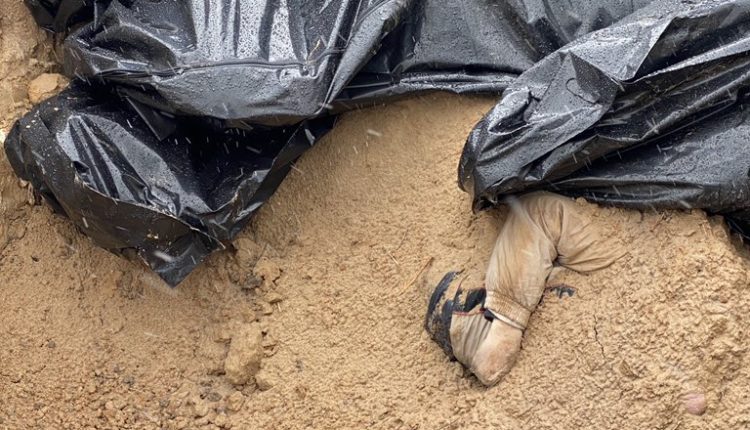Bucha Killings: Russia continues to be on Backfoot
Denouncing news as fake or spreading false reports to sow confusion and undermine its adversaries are tactics that Moscow has used for years and refined with the advent of social media in places like Syria.
Insight Bureau: As gruesome videos and photos of bodies emerge from the Kyiv suburb of Bucha, Kremlin-backed media are denouncing them as an elaborate hoax a narrative that journalists in Ukraine have shown to be false.
Denouncing news as fake or spreading false reports to sow confusion and undermine its adversaries are tactics that Moscow has used for years and refined with the advent of social media in places like Syria.
Russia’s Ministry of Defense on Wednesday warned that Ukrainian Armed Forces are “preparing to stage” provocations similar to the Bucha civilian killings.
In a press briefing on April 6, Wednesday, the Defense Ministry of the Russia Federation claimed that it has intelligence that in the city of Pervomaisky, Kharkiv region, the Ukrainian special services SBU “is preparing a major provocation using poisonous substances.”
Support Independent Journalism? Keep us live.
It further claimed that Ukraine’s SBU officers mined a storage facility with 120 tons of chlorine on the territory of the Khimprom. They plan to “blow up” this repository to later blame the atrocities on Russian troops, accusing Kremlin of a “chemical disaster that caused the death of local residents.”
The whole world has condemned the Bucha Killing incident, with India strongly demanded action against Russia for its offensive.
India’s vote at the UN General Assembly will be watched closely, as a resolution sponsored by the U.S., U.K. and other countries seeks to suspend Russia’s membership of the UN Human Rights Council (HRC), where it is an elected member, after the discovery of mass graves and human rights excesses in the Ukrainian city of Bucha.
Thus far, India has abstained on at least 10 resolutions critical of Russia at the UN Security Council, UN General Assembly, Human Rights Council and the International Atomic Energy Agency (IAEA).


Comments are closed.